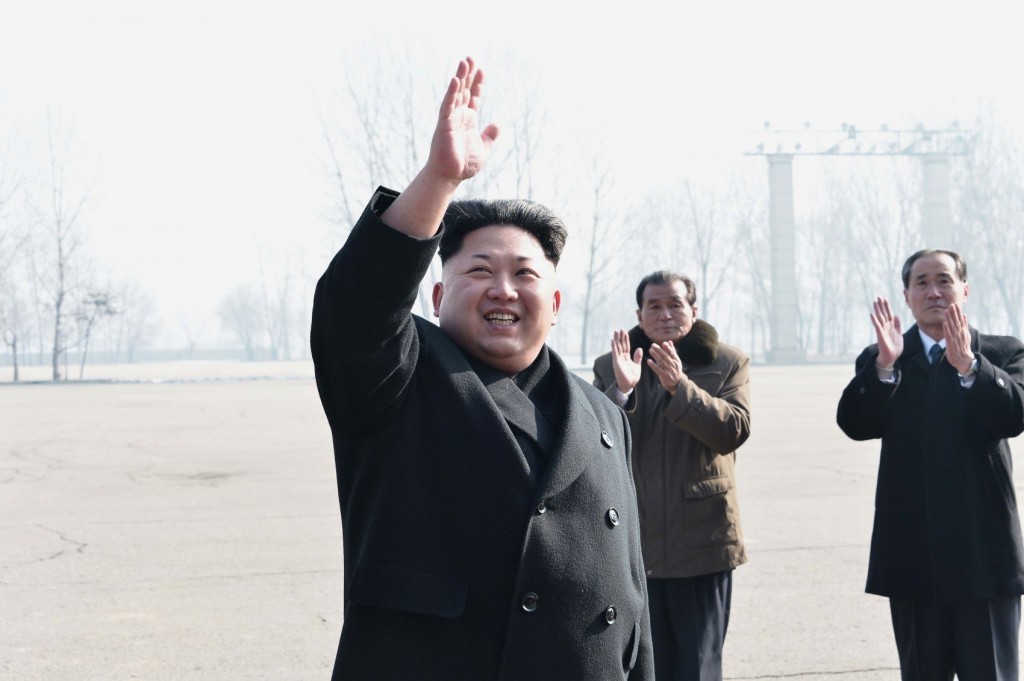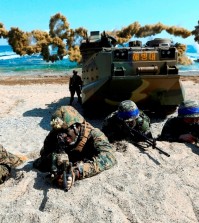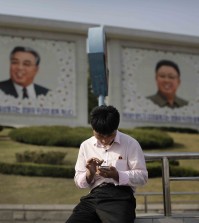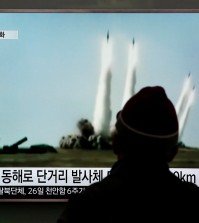- California Assembly OKs highest minimum wage in nation
- S. Korea unveils first graphic cigarette warnings
- US joins with South Korea, Japan in bid to deter North Korea
- LPGA golfer Chun In-gee finally back in action
- S. Korea won’t be top seed in final World Cup qualification round
- US men’s soccer misses 2nd straight Olympics
- US back on track in qualifying with 4-0 win over Guatemala
- High-intensity workout injuries spawn cottage industry
- CDC expands range of Zika mosquitoes into parts of Northeast
- Who knew? ‘The Walking Dead’ is helping families connect
N. Korea’s economic, food policy showing modest results: US expert

North Korean leader Kim Jong-un waves to construction workers at an event in Pyongyang in this photo released by KCNA on Feb. 12, 2015. (No sale outside of South Korea) (KCNA-Yonhap)
WASHINGTON, Feb. 18 (Yonhap) — North Korea’s food situation and its overall economy appear to be stable despite increased sanctions on the communist regime — an indication that Pyongyang’s policy of simultaneously pursuing nuclear and economic development is working, a U.S. expert said Wednesday.
Scott Snyder, a senior researcher on Korea at the Council Foreign Relations, cited the U.N. Food and Agricultural Organization (FAO) saying in its latest assessment that the North’s food production is estimated at 5.94 million tons in 2014, compared to the 5.93 million tons in 2013-2014.
That represents the highest level since the North’s economic collapse in the mid-1990s.
Experts on North Korea’s agricultural sector have said that the increase in the country’s food production is attributable to agricultural reform measures that center on allowing farmers to keep at least one third of their harvests.
“The FAO assessment of North Korean food production is consistent with anecdotal reports that North Korea has made productivity improvements in recent years and that the North Korean economy is stable if not growing slowly,” Snyder said in an article on the CFR’s website.
“This means that North Korea’s two-pronged policy of simultaneous economic and nuclear development is showing some modest results on the economic side. The problem is that the nuclear priority remains in place and North Korea’s efforts to develop missile and nuclear programs continue to proceed unchecked,” he said.
North Korean leader Kim Jong-un has made the so-called “Byeongjin” policy one of the country’s biggest goals, pledging to rebuild the moribund economy while forging ahead with its nuclear program.
South Korea, the United States and other nations have claimed the policy is a nonstarter, saying the North cannot rebuild its economy as long as it holds on to its nuclear ambitions. American officials have often said the North “can’t have its cake and eat it, too.”
“North Korea’s apparent economic progress is bad news for those who expect increased sanctions to be decisive in driving North Korea to make a strategic choice to give up its nuclear weapons,” Snyder said. “Under current circumstances, there is nothing to stop North Korea from having its cake and its yellowcake, too.”
Yellowcake, a type of uranium concentrate powder, is used in the preparation of uranium fuel for nuclear reactors.















